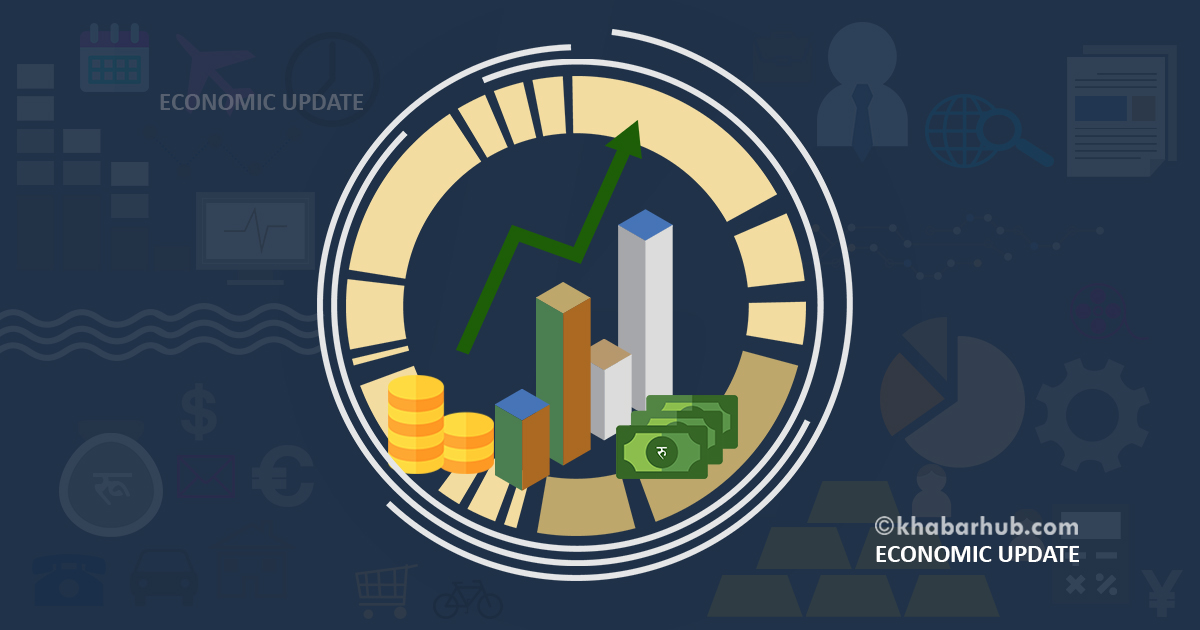KATHMANDU: Economic Digest offers a concise yet comprehensive overview of significant business happenings in Nepal, presented in easily digestible summaries.
Nepal begins exporting 400 megawatts of electricity to India daily
The decision to export approximately 400 megawatts of electricity to India daily highlights a significant development in the energy sector between Nepal and India. It signals Nepal’s capacity to harness its natural resources and meet its own energy needs while also contributing to its neighbor’s energy demands.
This export marks a notable shift in Nepal’s energy landscape, indicating increased production capabilities and potential economic benefits through energy trade.
Leveraging its abundant hydropower resources, Nepal can not only meet its own energy needs but also contribute to regional energy security and economic prosperity.
This export-oriented approach, coupled with ambitious targets for future expansion, demonstrates Nepal’s commitment to sustainable energy development and harnessing its natural resources for national and regional benefit.
NEPSE drops 0.95 percent, market cap at Rs. 32.81 on Thursday
The Nepal Stock Exchange (NEPSE) Index experienced a notable decline of 0.95%, closing at 2,069.53 at the conclusion of Thursday’s trading session. This drop follows a previous decrease of 1.14%, indicating a continuing downtrend in the market.
The index opened at 2,091.03 and, despite reaching an intraday high of 2,153.39, it dipped to a low of 2,065.59 before settling at the closing value.
The market saw significant activity with 311 stocks being traded across 61,072 transactions.
The total volume of shares traded was 9,864,482, amounting to a turnover of Rs. 4.21 Arba. The overall market capitalization stood at Rs. 32.81 Kharba, with the float market capitalization at Rs. 11.13 Kharba.
The Hotels and Tourism Index recorded the highest loss among sectors, significantly impacting the overall performance of the NEPSE Index.
This detailed summary highlights the performance and key statistics of the NEPSE Index, providing a clear picture of the market’s movements and overall economic sentiment for the day.
Finance Minister emphasizes economic reform and IT sector growth
Finance Minister Barsha Man Pun defended the impartiality of the government’s budget for the upcoming fiscal year, asserting that funds were allocated and tax rates revised without prejudice, with a focus on initiating a new phase of economic reform based on scientific assessments.
The total budget for 2024/25 amounts to Rs 1.860 trillion, with 61.31 percent allocated for recurrent expenditure and 18.94 percent earmarked for development projects, despite criticisms of breaching the budget ceiling set by the National Planning Commission and implementing tax hikes on electric vehicles and revisions on various goods and services.
Pun rebutted claims of succumbing to pressure from influential groups, emphasizing prioritization of funding for viable and ongoing projects over catering to special interests, with notable allocations to the education sector and a focus on IT-related businesses, aiming to export IT products worth Rs 3 trillion within the next decade.
Govt to introduce employment bank
The government, according to Prime Minister Pushpa Kamal Dahal ‘Prachanda’, is set to introduce an Employment Bank aimed at securing jobs for the workforce by aligning them with their skills and expertise.
This initiative, as outlined by the PM at the Shramadhan Employment Fair, will tackle job supply-demand issues and foster entrepreneurship. PM Dahal stressed the importance of utilizing the talents of returnee migrants and other citizens to bolster entrepreneurship, mentioning that the forthcoming fiscal budget will allocate resources to employ around 100,000 returnees, capitalizing on their knowledge and skills.
Government’s budget adjustments lead to cost increase for EVs
The government’s decision to raise customs duties by up to 20 percent on electric vehicles (EVs) in the annual budget for the next fiscal year is expected to increase EV costs by over 10 percent, according to automobile dealers.
Finance Minister Barsha Man Pun announced the revisions, including a 5 percent excise duty on EVs up to 50 kW capacity, with higher duties for vehicles in the 50-100 kW and above categories.
Rajan Babu Shrestha, vice-president of NADA Automobile Dealers Association, predicts a 12 percent hike in small electric car prices. Additionally, a 2 percent road charge on petroleum-based four-wheelers has been introduced, sparking concerns among industry representatives like Akash Golchha, senior vice-president of NADA, regarding potential impacts on tax revenue.
Friday’s Forex
Nepal Rastra Bank set the exchange rates for several foreign currencies, establishing the buying and selling rates for transactions.
The US dollar is priced at Rs 133.02 for buying and Rs 133.62 for selling. The euro’s buying rate is Rs 143.93, with a selling rate of Rs 144.58. For the British pound, the buying rate is Rs 169.17 and the selling rate is Rs 169.93.
The Qatari riyal has a buying rate of Rs 36.49 and a selling rate of Rs 36.66.
These rates indicate the cost in Nepalese rupees for purchasing these foreign currencies and the amount received when selling them, reflecting Nepal’s current foreign exchange market conditions as regulated by the central bank.
Gold prices surge in domestic market
The price of gold in the domestic market on Thursday rose by Rs 2,300 per tola. Fine gold traded at Rs 140,500 per tola, up from Rs 138,200 per tola on Wednesday.
Similarly, standard gold saw an increase of Rs 2,250 per tola, reaching Rs 139,800 per tola on Thursday compared to Rs 137,550 per tola the previous day. Conversely, silver prices declined by Rs 30 per tola, with Thursday’s rate at Rs 1,900 per tola compared to Wednesday’s Rs 1,930 per tola.
In the international market, gold prices dropped from $2358.29 per ounce on Wednesday to $2332.72 on Thursday.
Ncell revolutionizes roaming
Ncell has introduced a revamped roaming offer, making unlimited daily data services more accessible and affordable for travelers. The updated plan significantly reduces roaming data charges across various countries, including the US, UAE, Qatar, China, the UK, and Thailand.
Users can now stay connected without worrying about hefty fees, as daily data packs in the US, UAE, and Qatar are available for just Rs 79.88 per day, inclusive of taxes, compared to the previous Rs 190.18.
Similarly, customers visiting China, the UK, and Thailand can avail of the data service at Rs 190.18 per day, including tax, down from the earlier Rs 633.93. Additionally, Ncell ensures that users receive SMS alerts even while traveling, eliminating the need for a local SIM card.
(Compiled and prepared by Srija Khanal)
Economic Digest is a daily morning economic digest, basically relatable summations of the most important business news, and happenings from Nepal into easy-to-understand summaries.









Comment